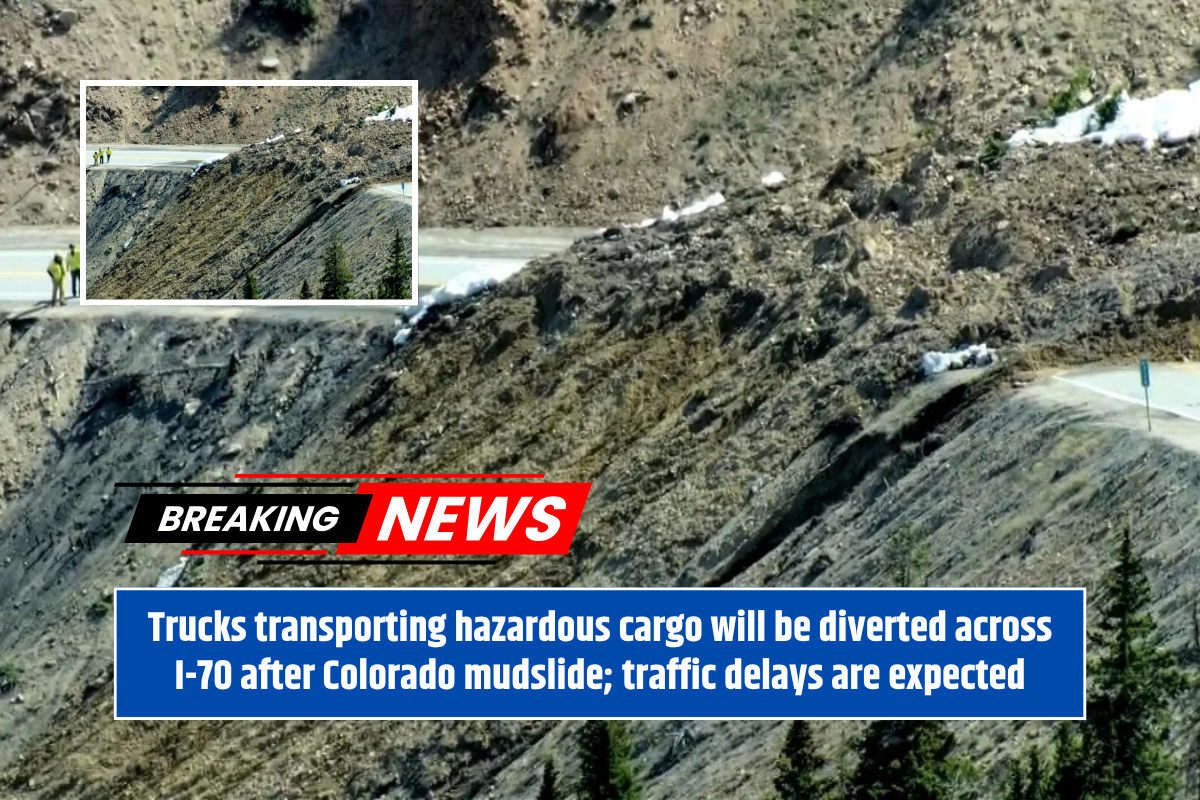A mudslide has caused a significant closure of U.S. Highway 6 at Loveland Pass, leading to traffic delays and adjustments in routes. The Colorado Department of Transportation (CDOT) has provided details on the situation, highlighting its effects on both travelers and hazardous material transport.
Mudslide Forces Road Closure at Loveland Pass
On Monday night, the Colorado Department of Transportation (CDOT) confirmed that the area around Loveland Pass was too unstable to begin cleanup efforts. Crews were identified to handle the cleanup, but they could not start until the area was deemed safe by the geology team.
The mudslide, which is approximately 15 to 20 feet deep, fully closed Highway 6 to traffic, and the area remains unstable. CDOT has not given an estimated time for reopening.
Impact on Travelers and Hazardous Material Transport
The closure of U.S. Highway 6 is particularly impactful for travelers heading between Loveland Ski Area and popular destinations like Keystone and Arapahoe Basin Ski Resort. The road closure also affects trucks that normally carry hazardous materials through Loveland Pass.
Because these trucks are not allowed to use the Eisenhower-Johnson Memorial Tunnels, they must be escorted through the tunnel on I-70. This process happens once every hour, leading to temporary traffic delays for other drivers.
CDOT has warned that these escorts, though quick, could still cause hold-ups as they require other vehicles to wait at the entrance of the tunnels. The area, which is located about 60 miles west of Denver, is known for its tricky terrain, further complicating the situation.
Safety Concerns and Timeline for Cleanup
The mudslide’s location, near mile marker 226 on Highway 6, is known for its steep slopes. Tamara Rollison, a communications director for CDOT, explained that the geology team must ensure the area is stable before any cleanup can begin.
The terrain is difficult, and safety is the primary concern. Rollison also mentioned that a similar slide occurred in the same area in 2003, but no similar incidents have been reported in the past 22 years.
The slide was triggered by snowmelt, which is common at this high elevation (close to 12,000 feet), where the ground became saturated, causing the mud to slide onto the highway. CDOT officials stressed that the area is still active and unsafe for cleanup efforts to begin. Hikers and cyclists have been advised to avoid the area for now.
The mudslide at Loveland Pass has caused a full closure of U.S. Highway 6, impacting travelers, especially those heading to nearby ski resorts and other mountain destinations. The presence of hazardous material trucks and the steep, unstable terrain further complicates the situation.
CDOT is working to stabilize the area and initiate cleanup, but there is no clear timeline for reopening. In the meantime, drivers should expect delays and consider alternate routes.
The situation remains under close monitoring, and travelers are advised to stay updated on road conditions and avoid the area to allow crews to work safely and quickly. Once the area is stable, cleanup will begin to restore normal traffic flow, but safety is the priority, as further slides could still occur.
